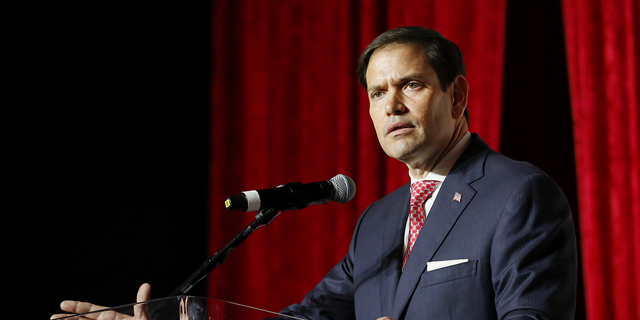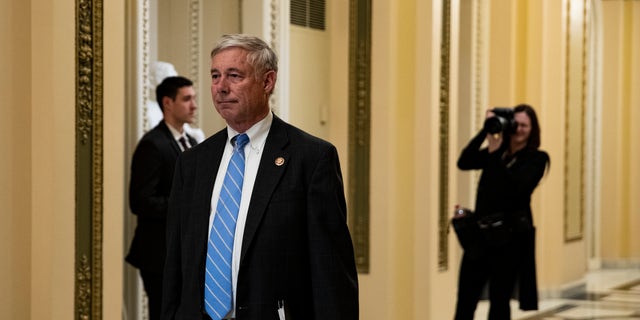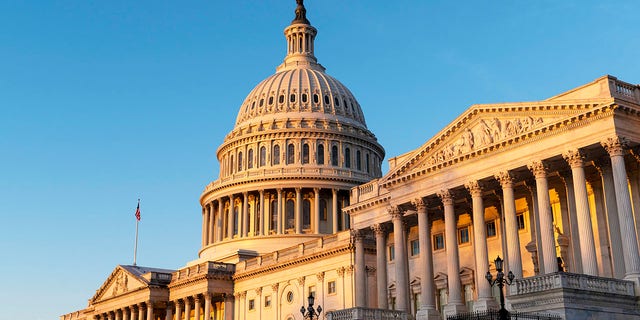
Time is running out on a Senate plan to make permanent Daylight Saving Time the law of the land.
The Senate stunned everyone in March when members approved a bill by unanimous consent to shift the nation forward one hour, year-round.
“Without objection, so ordered!” declared Sen. Kyrsten Sinema, D-Ariz., trying to suppress a smile, as she presided over the stupefying vote to end the bi-annual time change.
Sinema then sounded like Marv Albert after Bernard King drained a three-pointer at Madison Square Garden.
“Yes!!!” exclaimed Sinema from the Senate dais, pulling her forearms toward her and clenching her fists in a sign of victory.
“I think everyone was a little bit surprised that no one came down to object because they were all made aware of it,” said Sen. Marco Rubio, R-Fla., who wrote the bill. “I think there’s growing support for the notion of this flipping back and forth makes no sense.”
Americans switch the clocks this weekend for the first time since the Senate passed the Daylight Saving Time bill eight months ago. But the House of Representatives isn’t convinced that perpetual Daylight Saving Time is an idea whose time has come. The House hasn’t touched the bill. The Senate bill will expire if the House doesn’t align before the end of this Congress: 11:59:59 a.m. ET on Jan. 3, 2023.
For the Senate legislation, you can almost see the grains of sand slipping through the neck of an hourglass – until they all disappear.
That said, this is the closest Congress has come to implementing permanent Daylight Saving Time in the U.S. in decades. President Richard Nixon shifted the U.S. ahead an hour for two years during the 1970s OPEC oil embargo. And once one body of Congress approves a piece of legislation, that often ripens the potential for passage in the other chamber.

Senator Marco Rubio, a Republican from Florida. (Eva Marie Uzcategui/Bloomberg via Getty Images)
THE SPEAKER’S LOBBY: PROTECTING CONGRESS
That’s why Standard Time may be operating on borrowed time.
Congress may not adopt a bill to go to Daylight Saving Time all the time before the end of the 117th Congress. In fact, it may take a few years. But this issue is maturing.
“Why do we keep doing this back and forth thing?” groused Rubio. “Maybe there’s a good reason. But I don’t think there is, to be frank.”
So why is Congress involved in the setting of time at all?
Article I, Section 8 of the Constitution grants Congress control of time, via a provision to “fix the standard of weights and measures.”
Lawmakers have tweaked time ever since. In fact, Ben Franklin was the first to propose a seasonal switch of the clocks to align better with the sun. Franklin suggested the practice would conserve candles. Believe it or not, Congress has only successfully overridden a presidential veto on 112 occasions in the history of the republic. One of them was over a dispute between Congress and President Woodrow Wilson about changing the clocks after World War I.
Lawmakers last wrinkled time in 2004. Congress adopted a massive energy policy bill. Buried in the legislation was a provision that reduced the period the U.S. spent on Standard Time from approximately six months to just four months. That’s why we now “spring forward” in March and “fall back” in November. The time changes just to unfold in April and October, respectively.
Rep. Fred Upton, R-Mich., crafted the language to change the time.

Rep. Fred Upton (R-MI). (Anna Moneymaker-Pool/Getty Images)
PAUL PELOSI ATTACK: CAPITOL POLICE BEGIN ‘INTERNAL SECURITY REVIEW’ AFTER OFFICERS MISSED BREAK-IN
“Halloween is the number one death day for your kids,” said Upton.
He noted that the time change sometimes fell in October when various communities would hold “Beggar’s Night,” a week or two prior to Halloween.
“So you had one less hour of sunlight, and you’ve got little kids darting between cars in neighborhoods,” said Upton. “We have the extra hour, and it can show that it actually reduces crime because most crime is at night at dusk.”
But sleep experts aren’t sold on the time change.
Dr. Beth Malow of the Sleep Disorders Division at Vanderbilt University Medical Center says choosing one time or another would be better overall. But Malow dislikes a permanent shift to Daylight Saving Time.
“We’re off cycle for an hour for almost eight months out of the year,” said Malow. “We’re changing our clocks. But we’re not changing the light.”
There are also questions about the economic impact of switching the clocks twice a year. The general thesis is that adjusting the clocks for summer “gave” people more daylight.
“Ninety-nine percent of your population is awake and moving around and about at that time of the day, and they can use the sun to help them,” said University of Washington law professor Steve Calandrillo. “Commerce and most economic and business interests do favor the uniform, permanent Daylight Saving Time because they realize that more people are awake and want to go out and top and recreate and engage in activities in the early evening. That’s when we live our lives.”
But it’s debatable whether the time shift is truly lucrative.

The U.S. Capitol dome. (Bill Clark/CQ-Roll Call, Inc)
US CAPITOL POLICE OFFICERS WEREN’T WATCHING LIVE HOME SECURITY CAMERAS WHEN PAUL PELOSI WAS ATTACKED
“The Dow, the Nasdaq and the S&P 500 experienced negative returns the Monday following both time switches,” said Calandrillo. “You pick any random calendar day over the course of history, it’s a positive expected value. And yet the expected value is negative on the Mondays following both clock changes. That will show that people hate when you mess up their sleep cycles. They’re in a bad mood and that affects the stock market.”
Some have wondered if it may be better to rely on local time standards rather than a sweeping, national mandate from Congress. For instance, St. Paul, Minn., and Minneapolis used to operate on different clocks. The Mississippi River carved a temporal border between the Twin Cities.
“Geography probably plays more of a role than politics,” says Malow. “This is a nonpartisan issue because it’s really about where you live.”
That’s why residents in the north or extreme ends of time zones worry about a change that would make it get dark too early – or light too late.
“It can be really disruptive to us,” said Malow. “They feel off-cycle. Off-kilter. And they just want to be done with it.”
CLICK HERE TO GET THE FOX NEWS APP
There’s only a finite amount of light and dark to go around, regardless of the season or where you live.
If Congress doesn’t change the time change, we’re stuck with the time changing.
As they say, time waits for no one. The least of which is the U.S. Congress.








